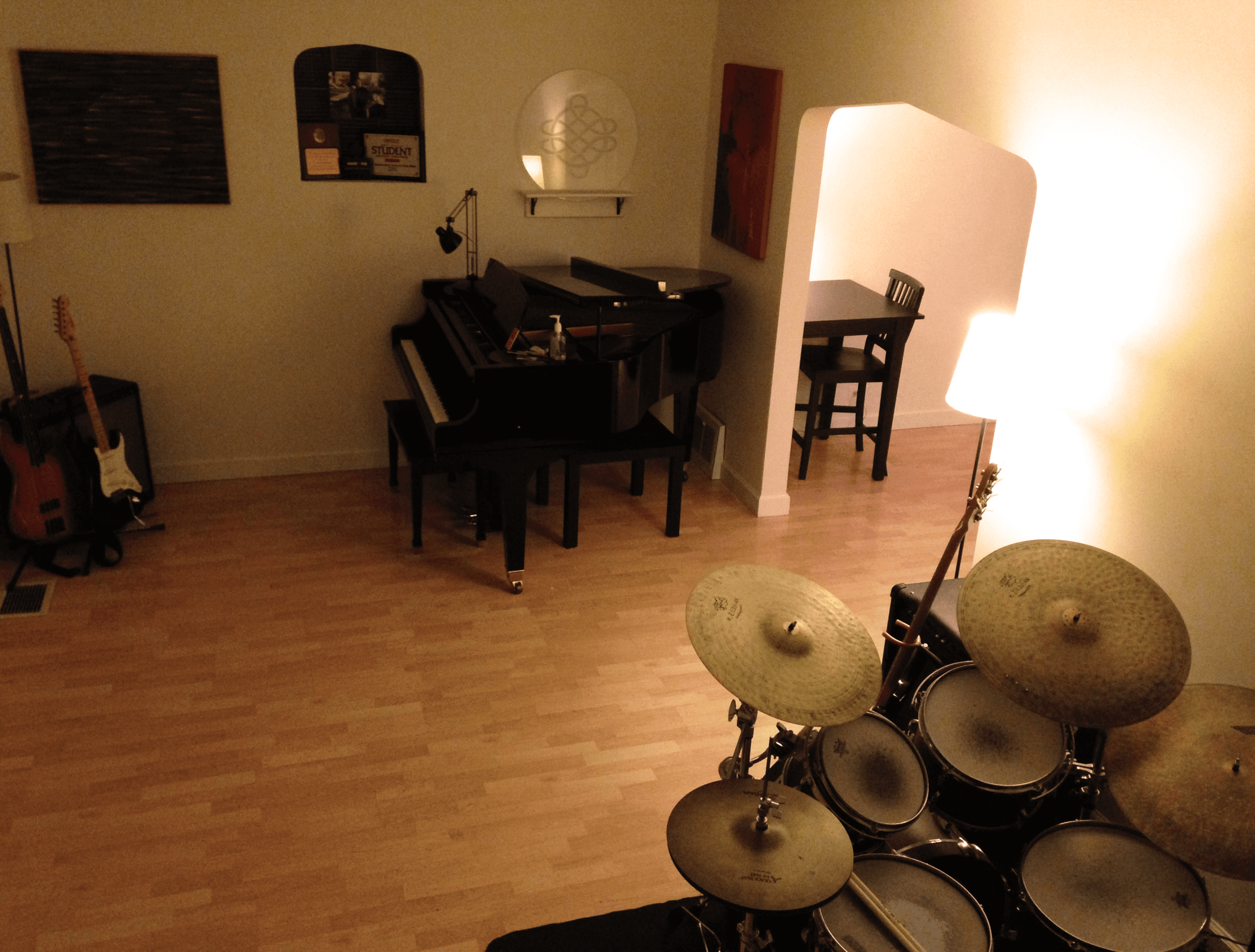Patera’s teaching studio from 1998 to 2016
For nearly 20 years before I became The Academy’s Head of School, I maintained a grueling roster of private piano students at my studio in the suburbs. Over the years, I had hundreds of students, and many developed into virtuoso musicians, won major scholarships and awards, and became successful professionals.
I am not a virtuoso musician. My students excelled because I was able to help them develop momentum.
The single biggest reason why any young music student doesn’t develop into a highly-able musician is because they don’t practice enough (or at all). The notion of “talent” (whatever that is) matters little here — the students who had “talent” (but didn’t work hard) never fared as well as the students who consistently put in the time and effort to improve.
The trick, of course, is how to get young people to practice. (The problem is the same for us adults in the room. How do we get ourselves to exercise? To read more? To meditate?)
We tend to over-rely on willpower. On a long enough timeline, though, willpower will always fail. The problem is that we try to become good at something before we get good at showing up to get good at something. Instead of willpower, we need habits.
Here’s how I addressed it with 20 years of piano students.
At a student’s first lesson, I would tell them that they weren’t allowed to touch the piano for a week. I didn’t want them going home all excited, practicing for an hour, and then feeling like they were off the hook for the rest of the week. (Admit it: you had no trouble going to the gym on January 2. But I’m guessing January 3 was much harder, and that you didn’t go at all on January 4.) For the students who were genuinely interested in learning to play, this week was torture.
At the student’s second lesson, I would give a single, simple assignment: show up at the piano every day, for only five minutes, and do anything at all. Play songs you like. Play scales. Play Middle C over and over again. Or, just sit there and stare at the keys. Just show up, for five minutes, and then walk away.
For most students on most days, walking away from the piano was a painful experience. But because they didn’t sit there until they were bored or tired, they started looking forward to the next time they were allowed to play.
I gave my students a calendar to track their days. I told them that if they missed any days in that first week, I would quit as their piano teacher. (Back then I was younger and cooler, so this was a compelling threat.) “No missed days,” I’d exhort. “Go to sleep five minutes later, or wake up five minutes earlier. If you can’t find five minutes, you don’t actually want to do this.”
Many students would protest: “How am I going to get better in five minutes a day?!” they’d worry. On one level, their fears were valid: no one gets good at the piano in five minutes per day. On a much deeper level, though, they were learning a more fundamental skill: how to show up.
By the second lesson, nearly every student I’d ever had walked in the door with a seven-day streak. For most of them, it was the first time in their lives they’d ever done something growth-oriented every day for a week, and they were clearly proud of it. They’d report that once or twice they almost forgot, or that they didn't feel like it, but they did it anyway. Those were the most important days, because they were learning how to overcome small obstacles, and every time they cleared one, they were better prepared to face the next (bigger) one.
Each week, I’d gradually increase the time commitment: practice seven minutes per day. Practice 10 minutes per day. This week, practice 20 minutes on five days, and have two five-minute days. But no matter what, practice every single day.
After about thirty days, something exciting would start to happen: students would get very protective of their “streak.” When we’ve done something every day for 30 straight days, “not feeling like it” suddenly doesn’t feel like a good enough reason to break the streak on Day 31. So they’d keep going. And once it was clear that they would show up at the piano every day and accumulate significant weekly time, it became nearly effortless to lead them through actual piano pedagogy.
I found that about 90% of my students who made it to Day Seven made it to Day 30. And about 90% of my students who made it to Day 30 made it to Day 100. Here’s where it got fun: almost everyone who got to Day 100 got to Day 365. And those who made it to a year? Most of them never missed a day of practice until they went away to college, with a great number of them achieving many-years-long streaks.
The result was that many dozens of these young musicians developed practicing superpowers and, consequently, became phenomenal musicians.
I later used this system on myself to become a long-distance ultramarathon runner. I’d explain more, but today is Day 1,201 of my run streak, so I’ve got to lace up and get outside.


